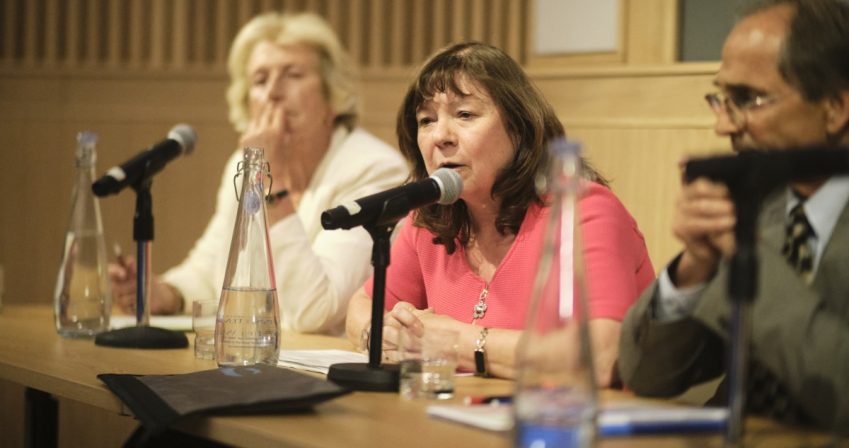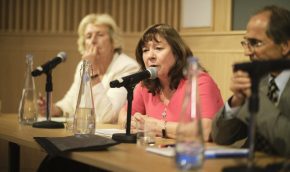The Inn will:
Education
- Call to the Bar
- Education & Training Policies
- Professor The Hon George Hampel AM KC
- International Practice Panel
- Munich – Why?
- 1500-2023 - Snapshots of The Inner Temple Library
- The Winding Stair: Inside the bitter rivalry of Edward Coke and Francis Bacon
- Dr Ivy Williams, An Enduring Inspiration to Women Lawyers
- Gilds and Things
- The History of The Inner Temple through its Treasures
- Human Rights in Britain and France: From Thomas Becket to the French Revolution
- Law in a Time of Plague - Was the Law a Good Doctor
- Lawyers and Diplomats
- The Selden Society: John Selden and Legal History
- The Selden Society: The Fire Courts
- The Smirkes and The Inner Temple
- Sub-Treasurers of The Inner Temple
- Treasures from the Library
- William Crashawe's Library
- Master H Meets...Again
- Have We "Had Enough of Experts"?
- Race and the Legal Profession
- The Absolute Ban on Assisted Dying and Lessons from Canada
- Assumptions of Responsibility
- Brain Imaging as Evidence
- Calling It Out: Professionals, their Regulators, Equity and Fairness
- The Bar of Ireland, Brexit and the Common Law
- The English Approach to Deciding Commercial Cases
- The Executive and the Courts in the Constitution
- Experts: Love or Loath? The Involvement of Experts in Legal Proceedings
- Forensic Document Examination - The Science Today
- Forensic Identification from the Hand
- The Future for Regulation of the UK Public Markets
- Giving Judges a Voice in Democracies
- The History of the Law Officers
- How the Law Should Respond to External Crises Such as COVID-19
- Lawyer or Politician: What is the Attorney General?
- The Limits of Fiduciary Rules
- Memory as Evidence
- Politics and the Law
- The Predicament and Agency of Refugees
- Previous Lecture Series and Speakers
- Proof in International Criminal Trials
- Reforming the Law of Contempt of Court
- A Public Health Approach to Equality Law
- The Role of the Medical Examiner
- 'Sales' on Retention of Title Terms
- Show me the money!
- Sport - Law and Ethics
- The Wild and Ridiculous Doctrine of Equality
- What Does It Mean to Be Anti-Racist in a Profession Full of Privileged People?
- The Work of UNIDROIT and the Future for the International Harmonisation of Commercial Law
- AI: Risks and Benefits
- Assisted Dying
- Asylum and Immigration: Do Sovereign Island Nations have a Duty to Provide Refuge?
- Britain's Unwritten Constitution
- The Crime of Ecocide
- Do Magnitsky Type Sanctions Develop the Rule of Law?
- Does the Bar Need to Communicate and Market Itself More in the Modern World?
- Environmental Law: Regulation and the Right to Protest
- Global Responses to the Forcibly Displaced
- Handing Back the Past: Cultural Repatriation
- Is Anything More Needed to Ensure Freedom of Speech?
- Is the Presumption of Innocence Alive and Well?
- Is There a Case for Anonymity in Social Media?
- Is Our Adversarial System Fit for Purpose?
- Is it Better to Review or Monitor Terror Laws? The UK and Australian Positions Compared
- Peace vs Justice
- Prison Reform
- The Rule of Law in Times of International Conflict
- Should UK Judges and ex-Judges Be Sitting in Hong Kong?
- Should our Constitution Protect Against Party Elected Leaders?
- Ukraine War: Peace-making Ahead – Traditional Methods of Accountability or New Solutions?
- Special Gandhi Lecture
- What Does a Master of the Bench Do?
- Frequently asked questions
Home › Education › Education & Training Strategy › Strategic Priorities › Collaborating with Others
Collaborating with Others
- Collaborate with the other Inns and the Council of the Inns of Court (“COIC”) to develop and influence education policy, make best use of our pooled resources and capabilities, and align our regulations and policies where it is appropriate to do so.
- Work in partnership with Inns of Court College of Advocacy (“ICCA”) to support the development of future and practising barristers.
- Engage with Specialist Bar Associations to avoid duplication and maximise the impact and reach of our educational activities.
- Collaborate with the Bar Council and other organisations to provide an effective outreach programme, and use Pupillage Gateway data and experience to inform our scholarships and pre-pupillage support programmes.
- Collaborate internally to deliver this strategy, making best use of our pooled resources and capabilities
- Work collaboratively with academic benchers and partners to inform and enhance our educational activities.


We will work closely with a broad range of partners to identify opportunities for useful collaboration with clearly defined outcomes, whilst avoiding duplication. We hope to make it easier for our members to navigate the broader education and training landscape so that opportunities are not missed.